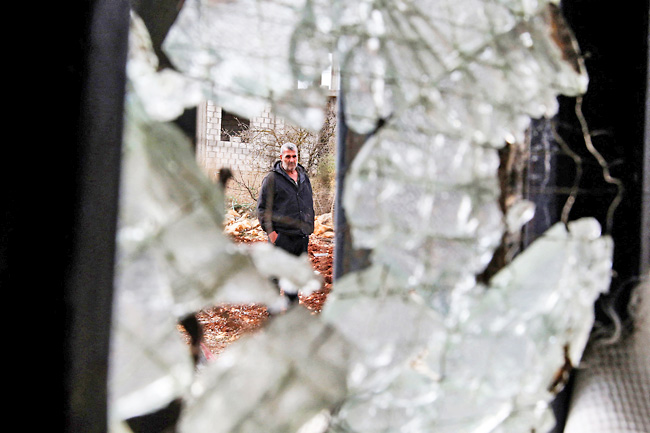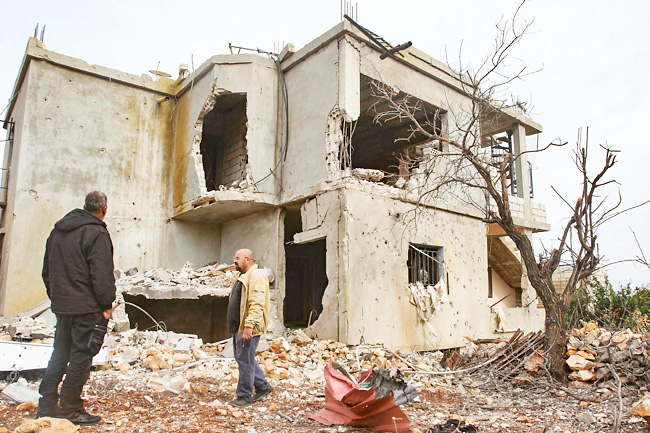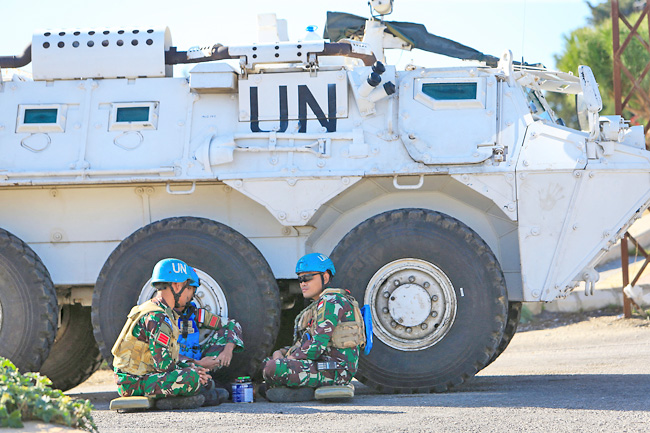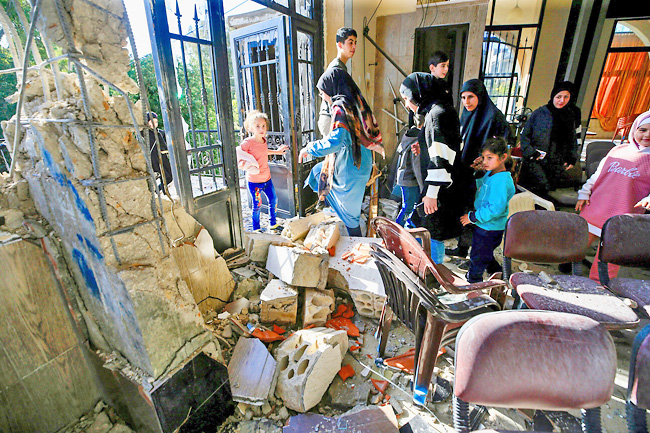AITARUN (AFP) – Lebanese farmer and minibus driver Abdallah Abdallah went back to his village near the Israeli border on Saturday to find that weeks of bombing had badly damaged his house and destroyed his tractor.
“What can I say? Israel has always been criminal, it has always targeted our houses,” said Abdallah, 50, his face weary as he pointed to gaping holes in the walls of his two-storey home in Aitarun, just across from an Israeli military position.
Since the Israel-Hamas war began on October 7, the frontier between Lebanon and Israel has seen intensifying exchanges of fire, mainly between Israel and Shiite Muslim movement Hezbollah, but also Palestinian groups, raising fears of a broader conflagration.
Abdallah fled after the cross-border skirmishes began, and like others, timidly returned on Saturday to inspect his home, under the incessant buzz of Israeli surveillance drones.
Few frontier residents told AFP they intended to stay, fearing renewed violence after the end of the four-day truce between Israel and Hamas that began on Friday.
A source close to Hezbollah told AFP that the Iran-backed group would adhere to the truce if Israel did.
“My tractor was destroyed and also the van I used to take the children in the area to school,” said Abdallah, a father of six.




The ground around his house was strewn with shrapnel, and burnt fruit trees stood in the garden.
Across south Lebanon, houses with smashed walls, shattered windows or doors ripped off their hinges bear witness to the violence of recent weeks.
Fatima Taha, 55, breathed a sigh of relief when she discovered her house in the village of Mais al-Jabal was mostly intact, with just a few broken windows.
“We came back when they announced the truce but everyone is afraid,” she said, picking lemons from a tree in her garden.
“Some people came just for the olive harvest but don’t want to stay” because they fear renewed bombing, she added.
In many villages near the border, authorities have put up signs asking residents not to use roads close to Israeli positions.
On Saturday, Israeli soldiers fired into the air to “frighten farmers” who were working on their land, according to Lebanon’s official National News Agency.
Authorities have also warned farmers against harvesting their olives near the border, fearing the harmful effects of what Lebanon says is the Israeli use of the incendiary substance white phosphorus.
The Israel military has denied using white phosphorus in Lebanon and Gaza.
In Kfar Kila, just a few metres from the frontier, Yahya Ahmed, 62, inspected the damage at his cafe, whose front and windows had been smashed.
“I want to clean things up and put the tables outside. I can’t wait to sit here again,” he said near a large tree in the courtyard.
The 62-year-old, who has lived through previous conflicts in the area, decided to stay, despite the risks. “It’s our country,” he said. “I won’t leave here.”






